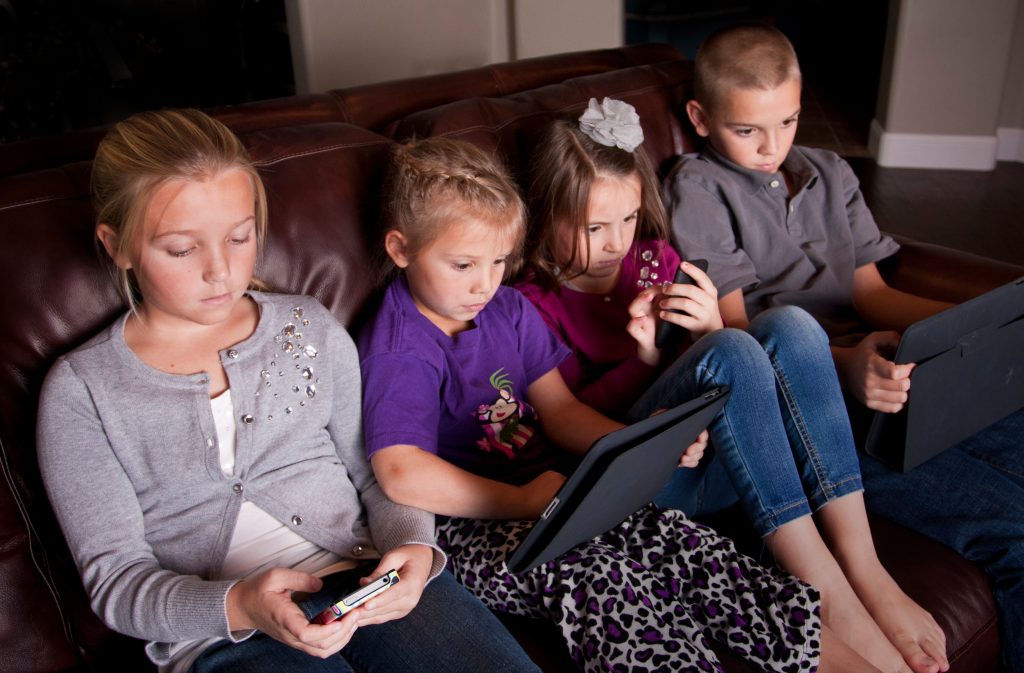Blog
Children’s Mental Health: Screen Time Dilemma
Posted:
In today’s technology-driven world, navigating the digital jungle with young children can be quite challenging. While playing on tablets and phones can offer educational potential and occasional entertainment, excessive screen time can raise questions about development, socialization, and mental health. To help parents find their footing, LFCS offers a screen time & children’s mental health checklist.

Less is more.
It is advisable to limit screen time to under 30 minutes each day for toddlers and one hour each day for preschoolers. Prioritize real-life interaction and play, which builds creativity and fosters cognitive and social growth.Dinner time is an electronic-free zone.
Mealtime can be a great opportunity for parents and kids to reconnect with one other. Asking questions about your child’s day and showing an interest in how they are feeling will strengthen the healthy parent-child relationship.Go outside with your kids.
Spending time in nature can improve our overall health and well-being. Physical activity also promotes endorphins and better sleep, which are critical for growing kids.
Watch what they are watching.
Educating yourself about your child’s interests and showing engagement with them will boost their confidence. Ask questions about the shows they are watching and suggest watching them together. This will allow you to ensure that the content is appropriate, while also spending quality time with your kids!
Encourage digital literacy.
Help your child understand internet safety and establish clear guidelines. Encourage an open dialogue and teach them what they need to know

to stay safe online, including not connecting with people they don’t know, and ensuring their online accounts are private. Make sure they know to avoid sharing personal information, photos, or videos publicly or with people they don’t know. Teach your child about safety and boundaries, including the importance of saying “no” to inappropriate requests. Encourage your child to tell you or another trusted adult if something happens to make them feel uncomfortable.
Make sure your child is close by during screen time so you can monitor their activities.
It is very easy for kids to accidentally stray away from their approved online content without realizing it. Keep electronic devices in common areas of the home, and glance at your child’s screen from time to time to make sure what they are watching is within safe boundaries.
Use parental controls to block or filter unwanted content.
There are a number of great apps and phone feature that can help regulate what your child can access (and what can access your child). ConnectSafely, a non-profit organization that provides resources and education on internet safety, provides a section on parental controls, which includes a list of tools and apps that parents can use to monitor their children’s online activity.

Discourage the use of social media during homework.
Young minds need space to focus in order to learn. Sustained concentration is a skill best developed without distraction.
Model good screen time behavior.
This can be difficult for some parents, especially in the age of working from home. Make sure that you schedule quality time with your kids, without phones or devices.
Seek professional help.
LFCS offers tailored behavioral services for children. Our counselors and therapists can provide expert guidance on how to keep your kids healthy and safe!
More Related Posts:
- Children’s Mental Health Checklist for a Happy, Healthy New Year As the New Year unfolds, ensuring children’s mental health should be a top priority for every parent. To assist families...
- Physical Health / Mental Health Did you know that by improving your general physical health by exercising you are less at risk of developing mental...
- A Promise to Serve – Mental Health Services In 2018, Lutheran Family and Children’s Services (LFCS) is celebrating its 150th anniversary with the theme “Promise.” One-hundred fifty years...
- Importance of exercise for children’s mental health Do your children get enough exercise? It is important that children get adequate exercise in order to prevent physical health...